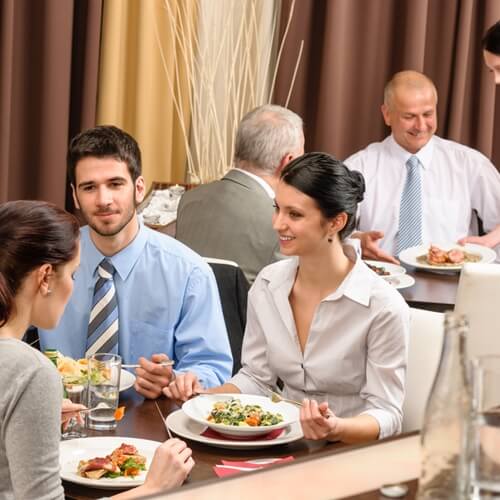Gastrodiplomacy: A new buzzword in foreign relations
American University in Washington, D.C., is now offering a class that most online cooking school students would undoubtedly find interesting: a course on gastrodiplomacy. Culture and cuisine have long been interwoven, but only recently has the notion of food as a mechanism for diplomacy really taken hold.
Food as a peace offering
“Gastrodiplomacy” may be a fancy term, but the idea of using food as a means to engage other cultures in a dialogue is as old as the dinner table itself. The ancient Romans were known to engage in discussion with their enemies over food, and the idea of a meal as a peace offering is present in most major world religions and cultures.
Modern gastrodiplomacy
Then-Secretary of State Hillary Rodham Clinton helped launch a diplomatic culinary partnership in 2012, bringing the concept of gastrodiplomacy to the table – so to speak – in the world of foreign relations. The Department of State created the American Chef Corps, which aimed to connect American chefs with diplomats, thereby increasing diplomats’ knowledge of foreign culinary traditions.
The U.S. wasn’t the first country to recognize the importance of food in foreign relations: Thailand launched a campaign called Global Tai in 2002 that aimed to boost the number of Thai restaurants worldwide from 5,500 to 8,000 in the hopes that a stronger appreciation for Thai cuisine would lead to a deeper understanding of the country’s native culture. And it appears that the Thai government may be on to something: According to a study published in Public Diplomacy Magazine, more than 50 percent of survey respondents said that consuming a country’s native foods led them to have positive feelings toward the country.
The new course
American University’s course on gastrodiplomacy isn’t geared toward students of online culinary schools, but rather, toward hopeful foreign diplomats. According to National Public Radio, this is the first time that gastronomy is being taught under the umbrella of foreign relations.
“What’s unique is that students themselves would never make the connection that food is a part of international relations,” Johanna Mendelson Forman, policy expert and course instructor, told NPR.
Students enrolled in the class will cover the history of food and its relationship with foreign affairs – but the part students will probably be most excited about is the opportunity to visit and sample the fare of various ethnic restaurants throughout the D.C. area.


